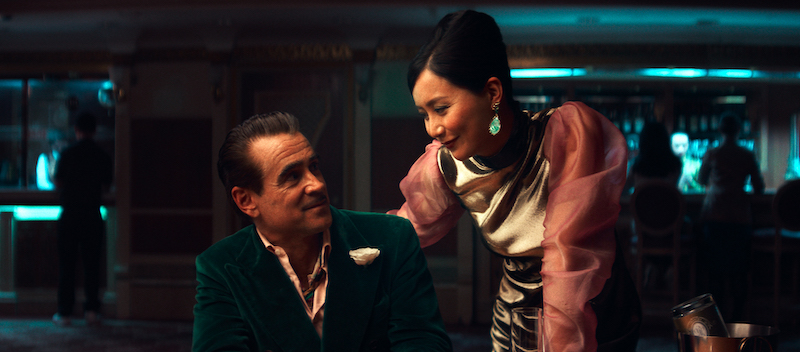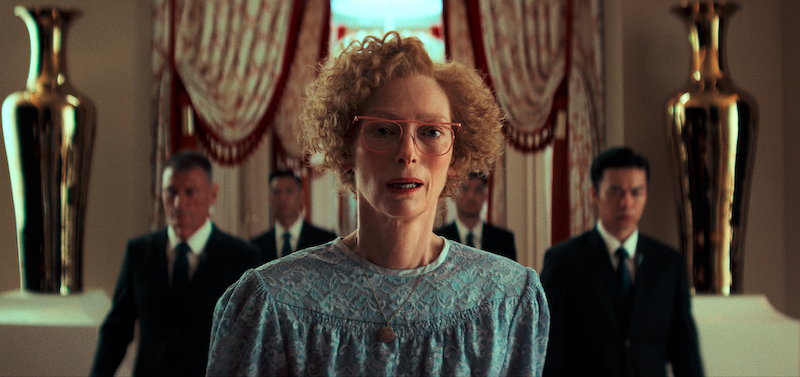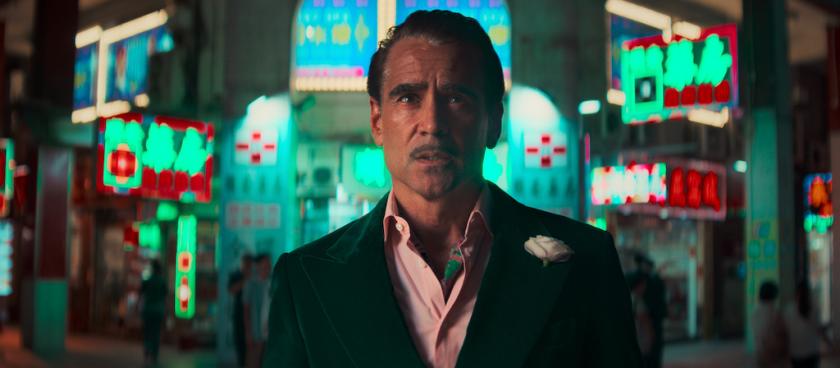Whether it’s the trenches of the First World War, or the halls and chambers of Vatican City, we’re becoming used to director Edward Berger creating highly believable, evocative and immersive environments for his stories. His latest is no different – except in one very particular way.
Adapted from Lawrence Osborne's 2014 novel, by Rowan Joffe, it's a psychological drama of sorts, which follows the misadventures of the charlatan, gambler and drunk ‘Lord Doyle’ (Colin Farrell) as he swishes around Macau in search of handouts that can take him back to the tables and the elusive winning streak that will keep the hounds from the door.
Chief amongst these is Cynthia Blithe (Tilda Swinton), a tenacious if eccentric investigator for a number of people Doyle swindled back in the UK. But the man has got debts all over town, while constantly ducking out of sight of the hotel manager who wants the bill paid for a sumptuous suite that is all part of the act of an English aristocrat – alongside the pencil moustache, hammy accent and colourful wardrobe.  A last hope comes in the form of Dao Ming (Fala Chen, pictured above with Farrell), a beautiful and mysterious loan shark; but so down is Doyle on his luck, that even the moneylender sees him as a bad bet.
A last hope comes in the form of Dao Ming (Fala Chen, pictured above with Farrell), a beautiful and mysterious loan shark; but so down is Doyle on his luck, that even the moneylender sees him as a bad bet.
As depicted by Berger and his regular cinematographer James Friend, Macau is a sort of Asian Vegas, gaudy and surreal, peopled by the lost and corrupt, with poverty stacked up around its edges. They mostly shoot at night, often in the rain, cranking everything to the max: the colour, the camera moves and kooky angles, the volume of the brassy, melodramatic soundtrack, all of this propelling the obsessive Doyle down his slippery slope.
The key difference in this creation of milieu, to the previous films, is in the perception of reality. All Quiet on the Western Front and Conclave were seeking verisimilitude. In contrast, characters in Ballad constantly talk of ghosts, and in more ways than one the profusely sweating, confused, desperate Doyle is indeed chasing phantoms; with the camera all over Farrell’s febrile performance, this feels more like a fever dream than reality.
Farrell is the constant centre. The Irishman’s last great role, as The Penguin, involved him buried beneath grotesque make-up; here, he’s looking himself, and a lot like Clark Gable, albeit a rare Gable, with all the heroism drained from his features. Doyle is at turns silly (a dash of Withnail, a splash of Hugh Grant), raffish, cunning and pathetic; if the film is about anything, it’s this man’s journey from self-preservation to redemption, and Farrell carries it beautifully.  Fala Chen is quietly wonderful as Doyle’s potential ally and love interest, as is Alex Jennings as a fellow gambler and scallywag. But while it may be impossible for her to be bad, Swinton’s oddball turn (pictured above) feels like a lazy riff on some of her previous ones.
Fala Chen is quietly wonderful as Doyle’s potential ally and love interest, as is Alex Jennings as a fellow gambler and scallywag. But while it may be impossible for her to be bad, Swinton’s oddball turn (pictured above) feels like a lazy riff on some of her previous ones.
The film itself is something of an oddity too – strenuously creating drama where there is none, while failing to find any at the tables (as a game of chance, based upon very few cards, baccarat makes for an anaemic battleground) and never quite overcoming its narrowness of scope. It’s certainly original, and surprisingly tender, but does feel slight.















Add comment